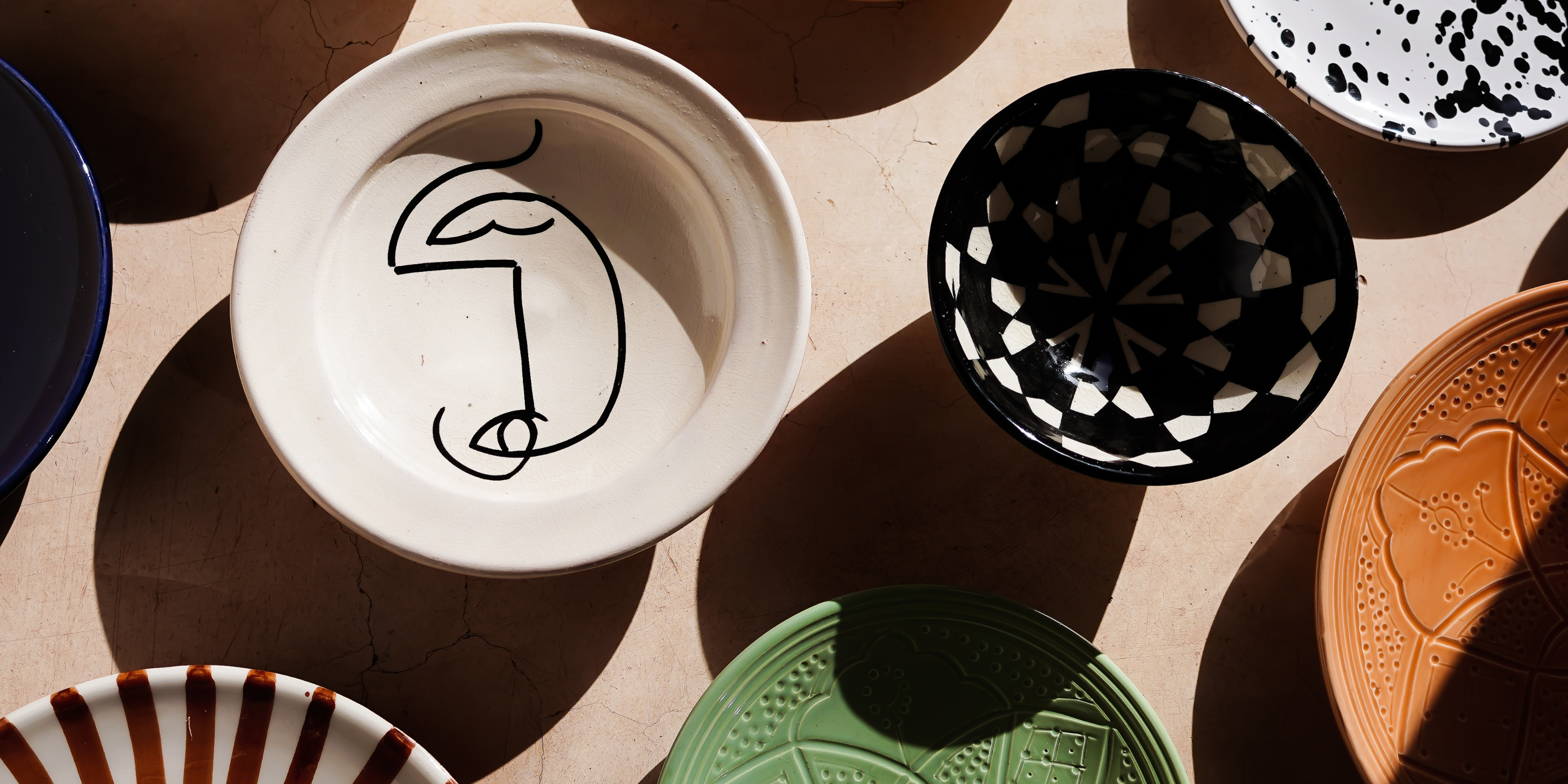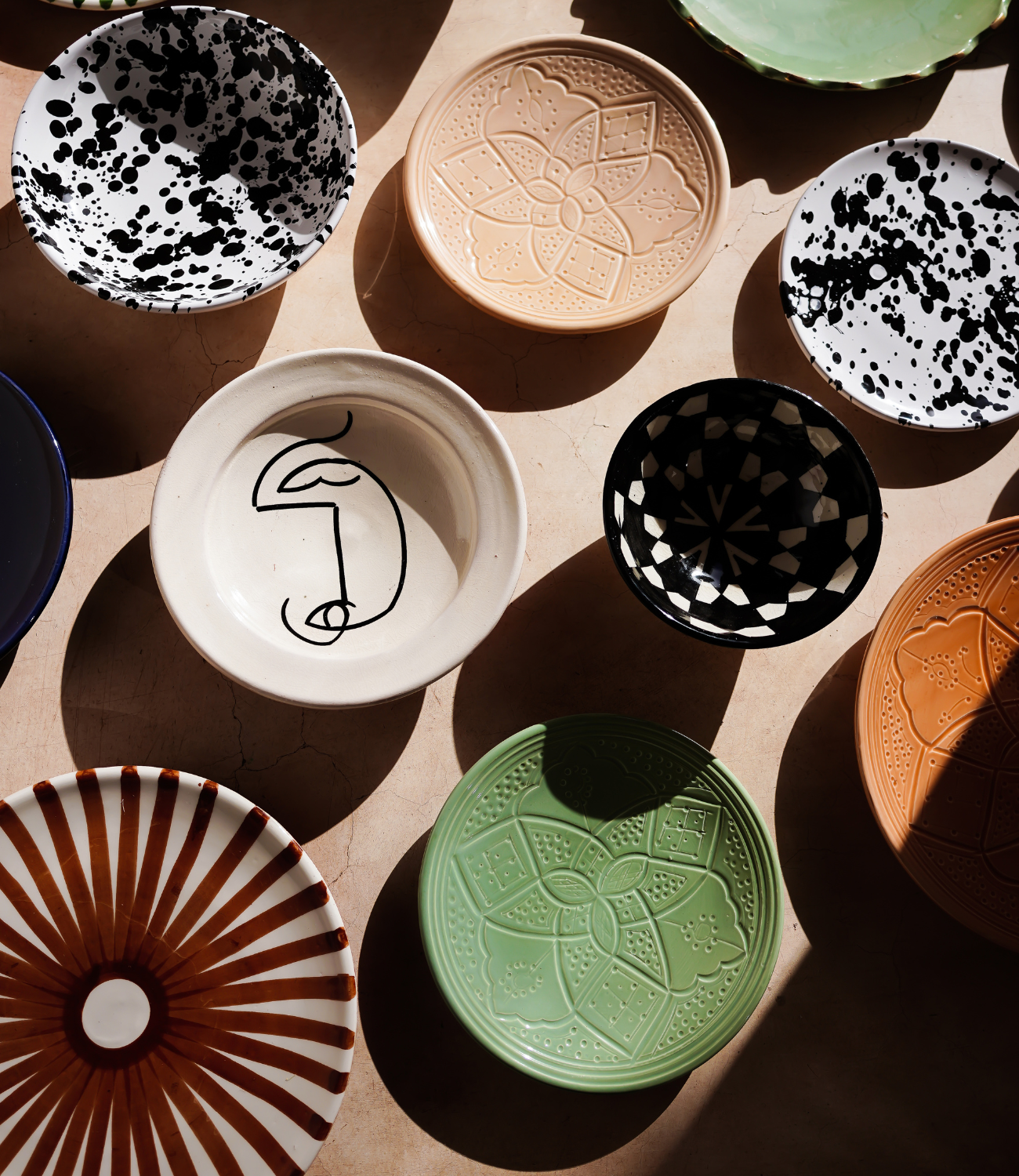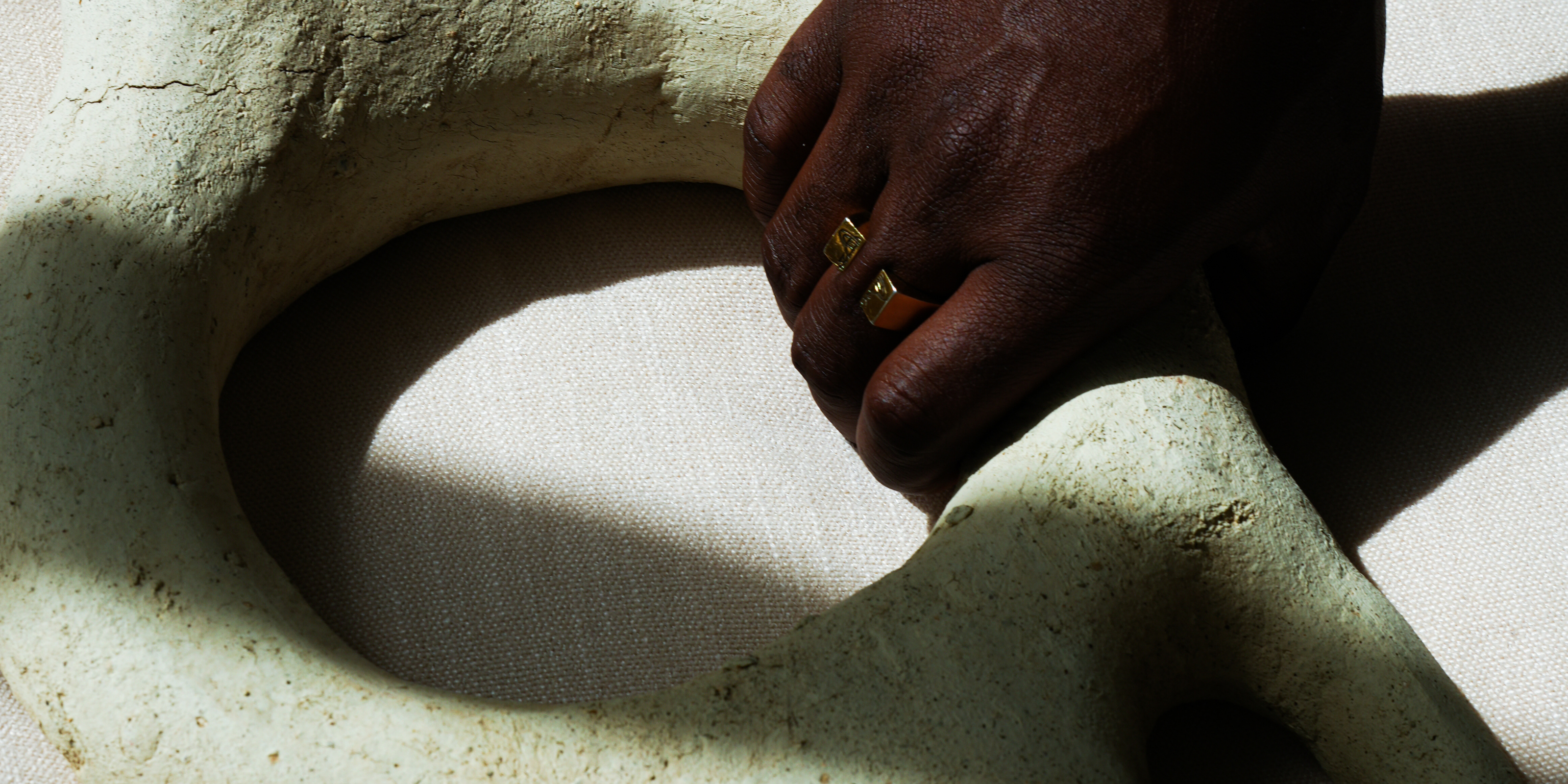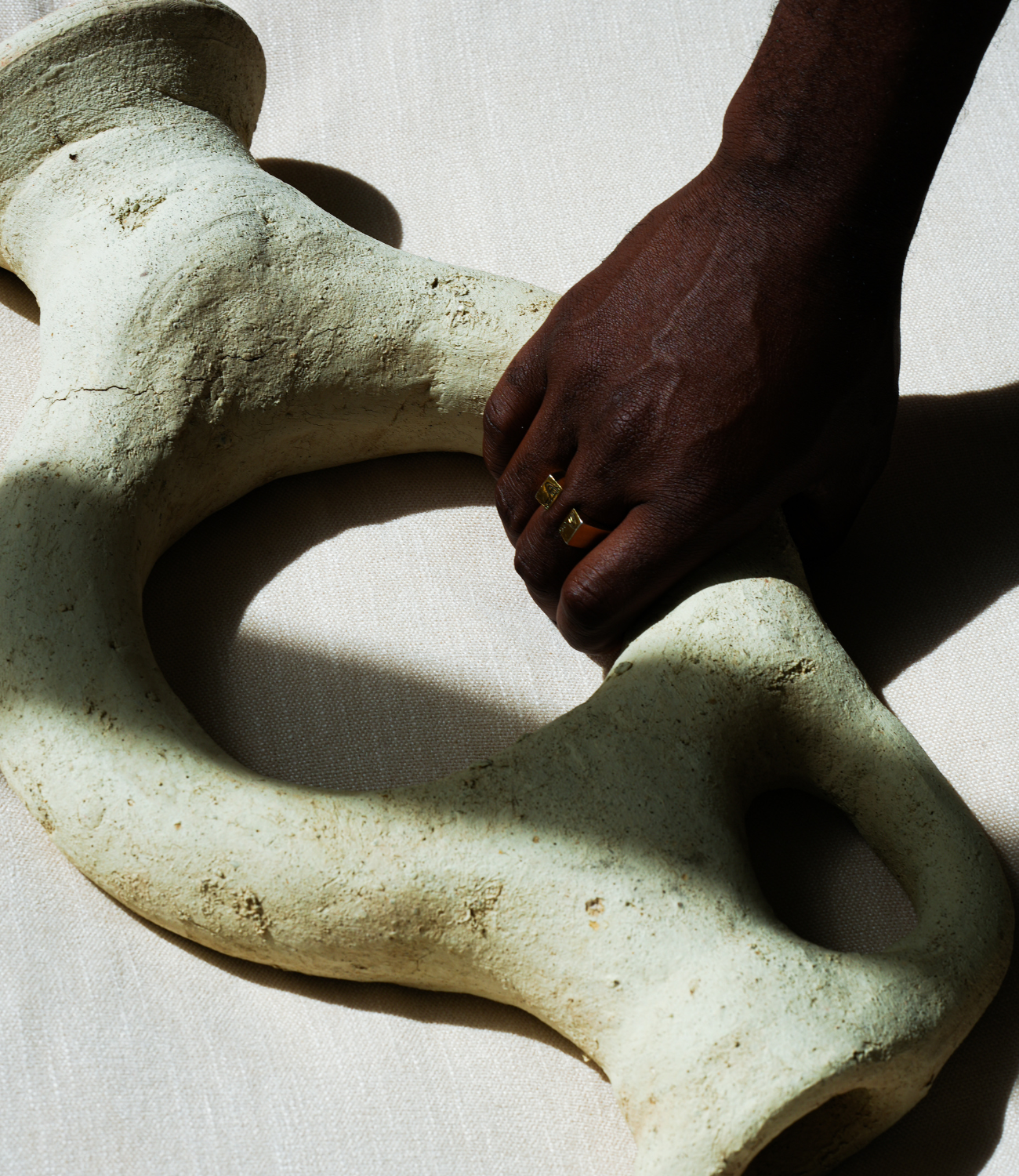Mediterranean craftsmanship
Craftsmanship is a form of production that uses manual skills, creativity and dedication to create unique, high-quality objects.
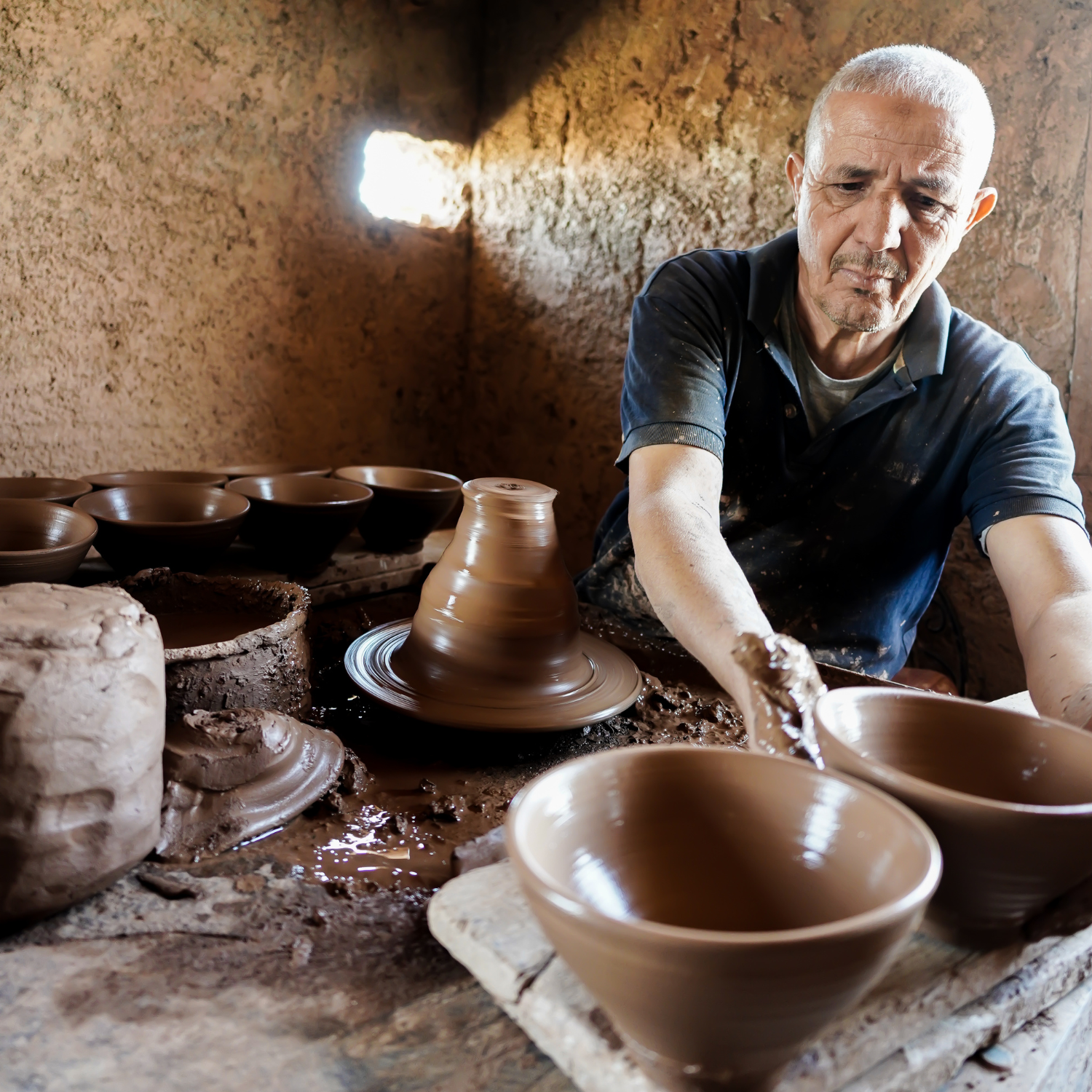
Uniqueness
Handmade objects are unique and distinctive. Each piece is created by hand, often to order or in a limited edition, which means that no two objects are ever the same. This lends intrinsic value to the craft, as it is an original work of art.
As well as representing excellence in the production of objects, craftsmanship offers an alternative to mass consumption, promoting values such as authenticity, quality, sustainability and a link with culture and tradition.
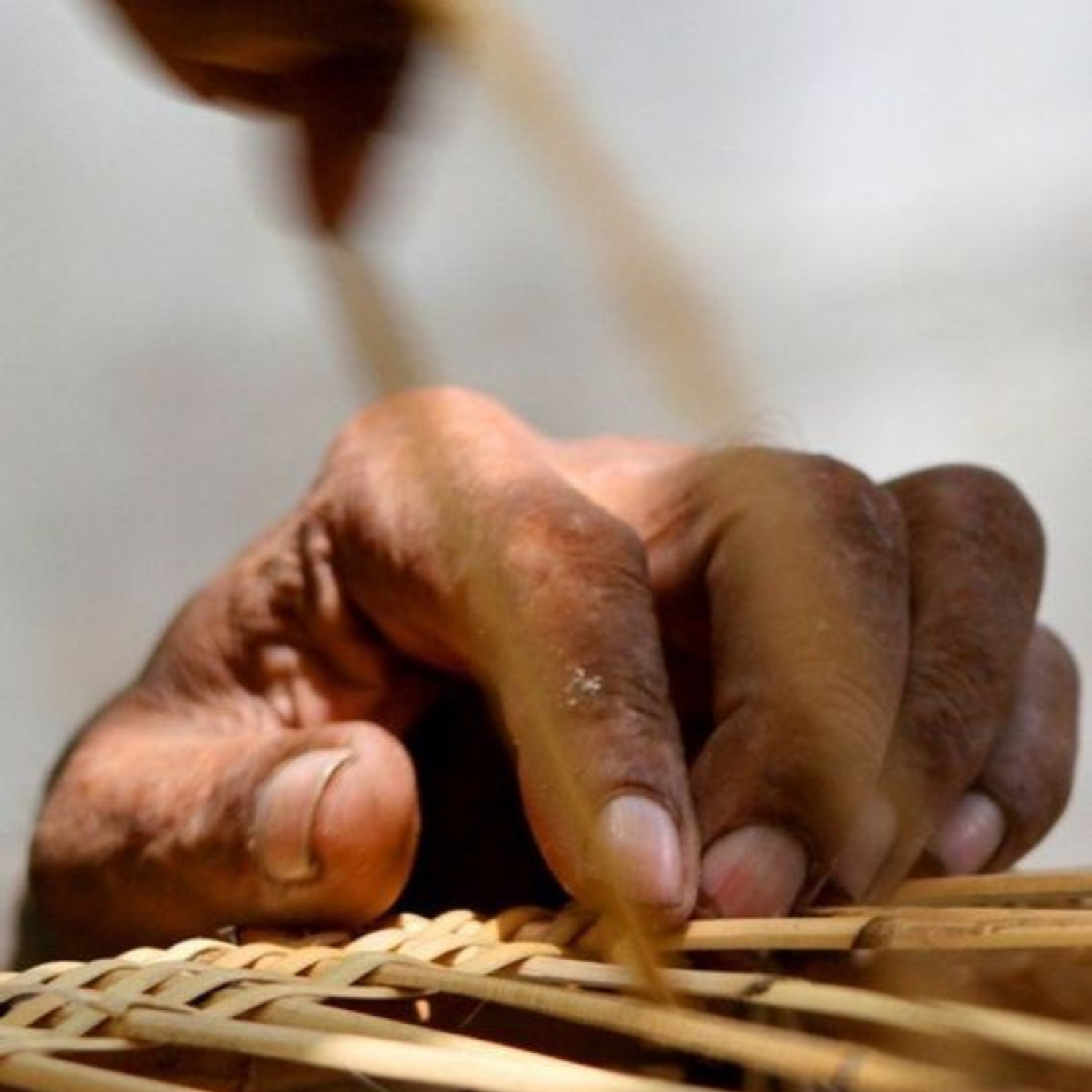
Quality craftsmanship
Artisans devote time, attention and expertise to making their products. They use traditional techniques handed down through the ages, requiring skill and precision. This commitment to quality is reflected in the end result, which is often superior to a mass-produced product.
Link with tradition
Craftsmanship is deeply rooted in the history and culture of a particular region or community. Artisans preserve and pass on ancient traditions and techniques, helping to keep knowledge and cultural heritage alive. To own a handcrafted object is to be attached to this tradition and to appreciate its history.
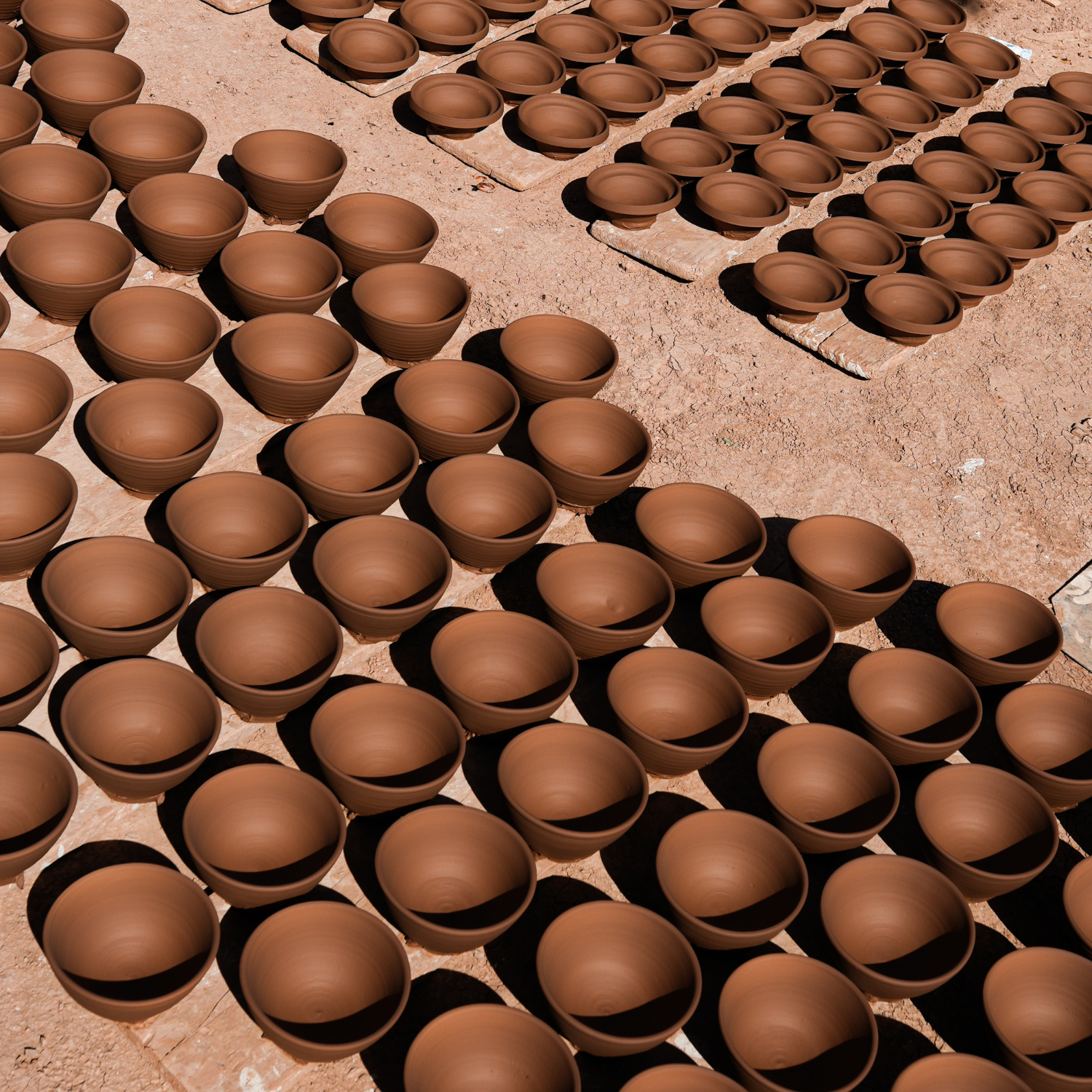
Environmental sustainability
Craftsmanship often promotes environmental sustainability. Craftspeople generally use natural, recycled or local materials, reducing their impact on the environment. What's more, handcrafted objects are often designed to last, avoiding the programmed obsolescence of mass-produced products.
Handcrafted objects are often charged with emotional and symbolic value. Owning a work of art or craft can create a sense of identity and belonging, both for the craftsman who created it and for its owner. This intangible aspect contributes to the overall value of craftsmanship.
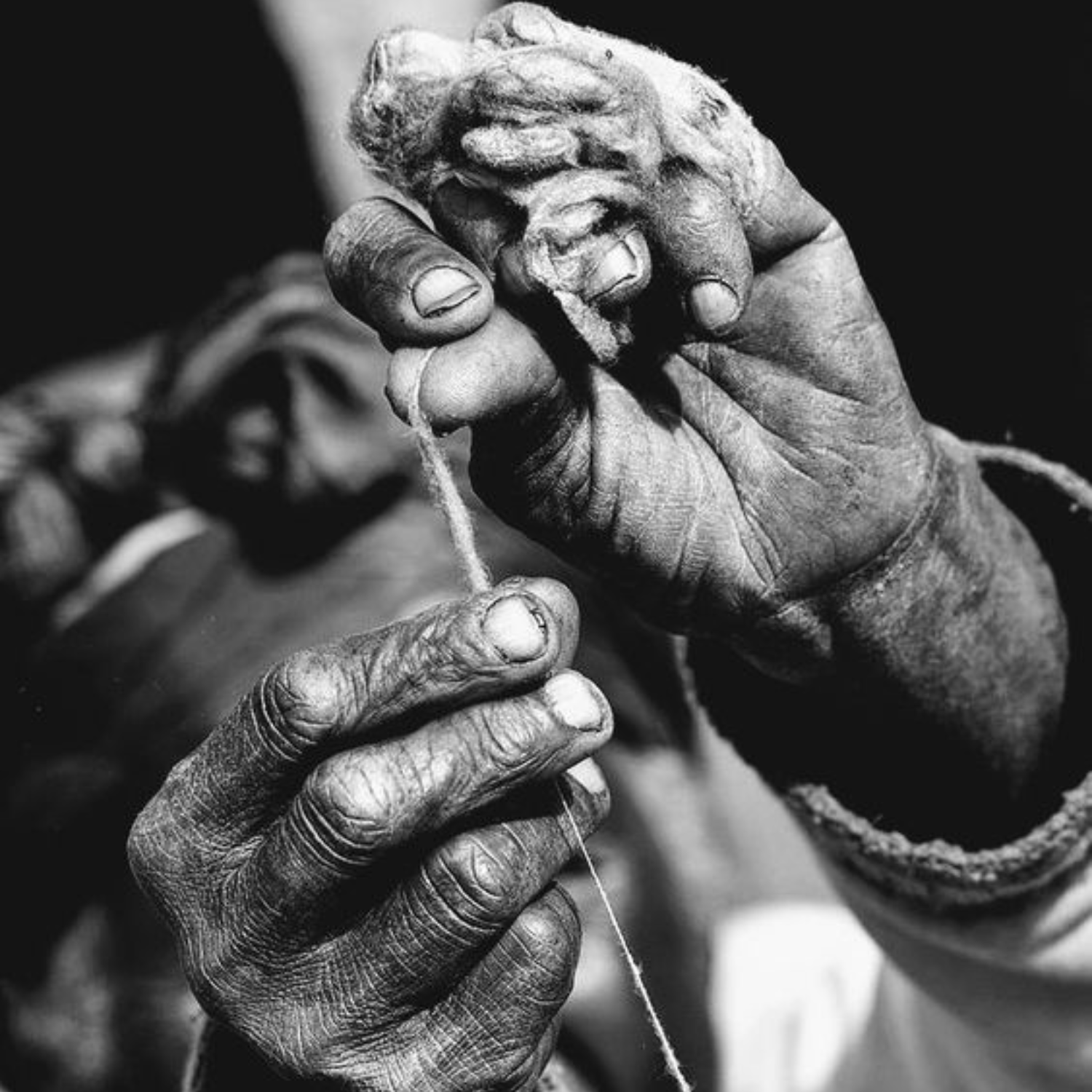
Patrimonio dell'UNESCO
Mediterranean craftsmanship is a form of artistic and artisanal production developed in various regions of the Mediterranean basin. This region has been known for centuries for its rich tradition of craftsmanship, which includes a wide range of disciplines such as ceramics, weaving, woodworking, metalworking, stoneworking and many others.
Mediterranean craftsmanship reflects the cultural and historical diversity of the region. Every country, and even every city, can boast a unique craft specialty. The techniques and materials used in Mediterranean crafts vary from region to region.
Mediterranean crafts play an important role in preserving cultural traditions and promoting sustainable tourism. Many local communities still depend on crafts as a source of income, and Mediterranean crafts are considered an intangible cultural heritage of humanity by UNESCO.



